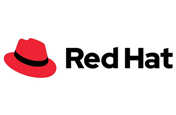Unable to find what you're searching for?
We're here to help you find itAD482 - Developing Event-Driven Applications with Apache Kafka and Red Hat AMQ Streams Course Overview
The "Developing Event-Driven Applications with Apache Kafka and Red Hat AMQ Streams" course provides an in-depth understanding of building and maintaining event-driven systems. It caters to developers and architects seeking expertise in leveraging Apache Kafka and Red Hat AMQ for real-time data processing.
In Module 1, learners explore the core principles that underpin event-driven architectures, setting the stage for more advanced concepts.
Module 2 introduces Kafka and AMQ Streams concepts, teaching students to develop basic messaging functionalities in applications.
Module 3 delves into the Streams API, guiding participants through the creation of sophisticated data streaming applications.
Module 4 focuses on asynchronous services and the event collaboration pattern, essential for modern, scalable systems.
Module 5 covers Kafka Connect and Debezium, tools for integrating and reacting to changes in data systems.
Finally, Module 6 equips learners with troubleshooting skills for Kafka and AMQ Streams applications, ensuring they can maintain performance and reliability.
By the end of the course, participants will have a robust skill set for designing and implementing event-driven systems using Apache Kafka and Red Hat AMQ technologies.

Purchase This Course
| Day | Time |
|---|---|
|
to
|
to |
♱ Excluding VAT/GST
Classroom Training price is on request
You can request classroom training in any city on any date by Requesting More Information
♱ Excluding VAT/GST
Classroom Training price is on request
You can request classroom training in any city on any date by Requesting More Information

1-on-1 Training
Schedule personalized sessions based upon your availability.

Customized Training
Tailor your learning experience. Dive deeper in topics of greater interest to you.

4-Hour Sessions
Optimize learning with Koenig's 4-hour sessions, balancing knowledge retention and time constraints.

Free Demo Class
Join our training with confidence. Attend a free demo class to experience our expert trainers and get all your queries answered.
Before enrolling in the "Developing Event-Driven Applications with Apache Kafka and Red Hat AMQ Streams" course, participants should have a solid understanding of the following concepts and skills to ensure they can fully benefit from the training:
While these prerequisites are intended to set a foundation for the course, the training is designed to accommodate learners from various backgrounds and levels of expertise. If you are new to some of these concepts, additional preparatory resources may be available to help you get up to speed before the course begins.
This course equips participants with the skills to design, build, and troubleshoot event-driven applications using Apache Kafka and Red Hat AMQ Streams.
Target Audience and Job Roles for the Course:
Gain expertise in building scalable, high-performance event-driven applications using Apache Kafka and Red Hat AMQ Streams, covering everything from fundamental concepts to advanced data streaming and integration techniques.

